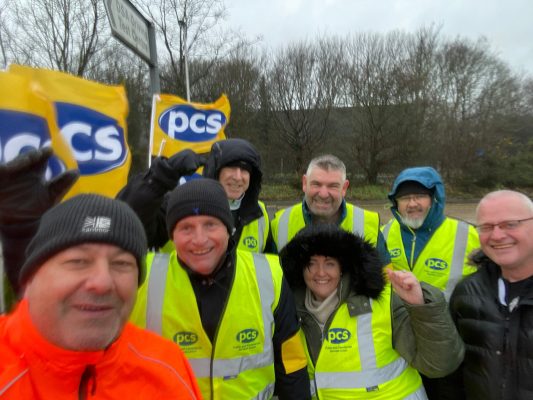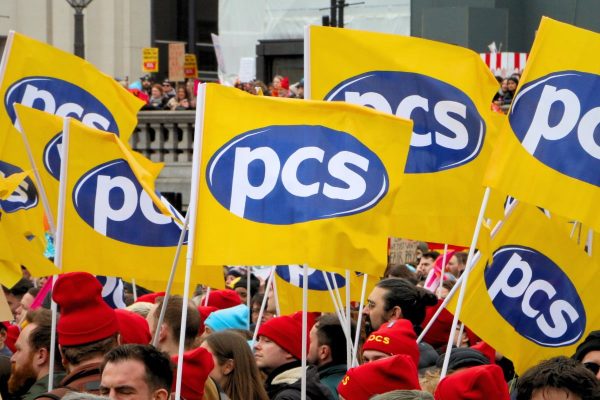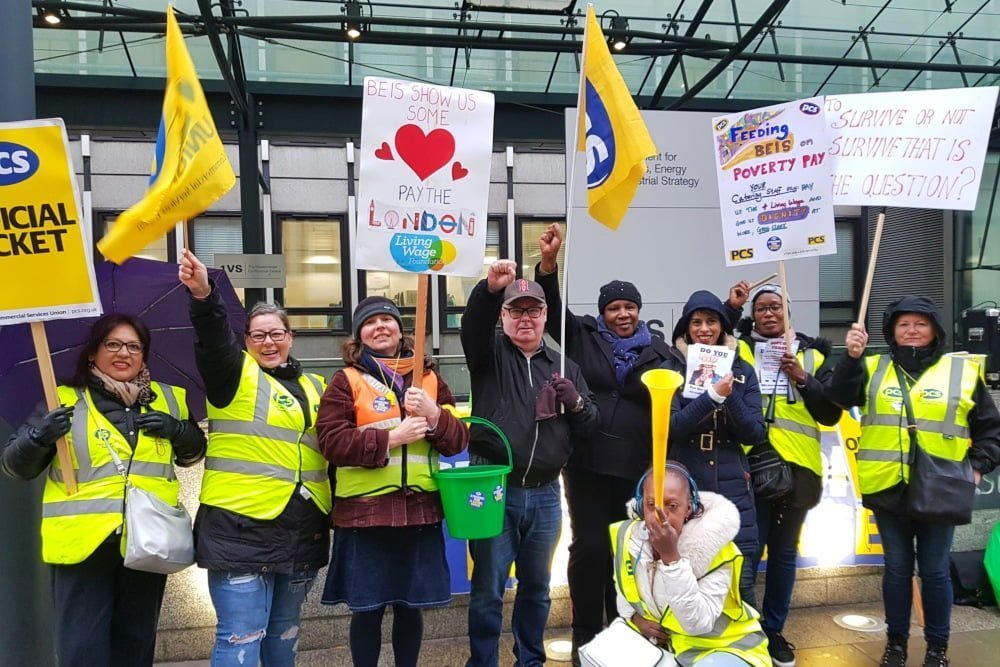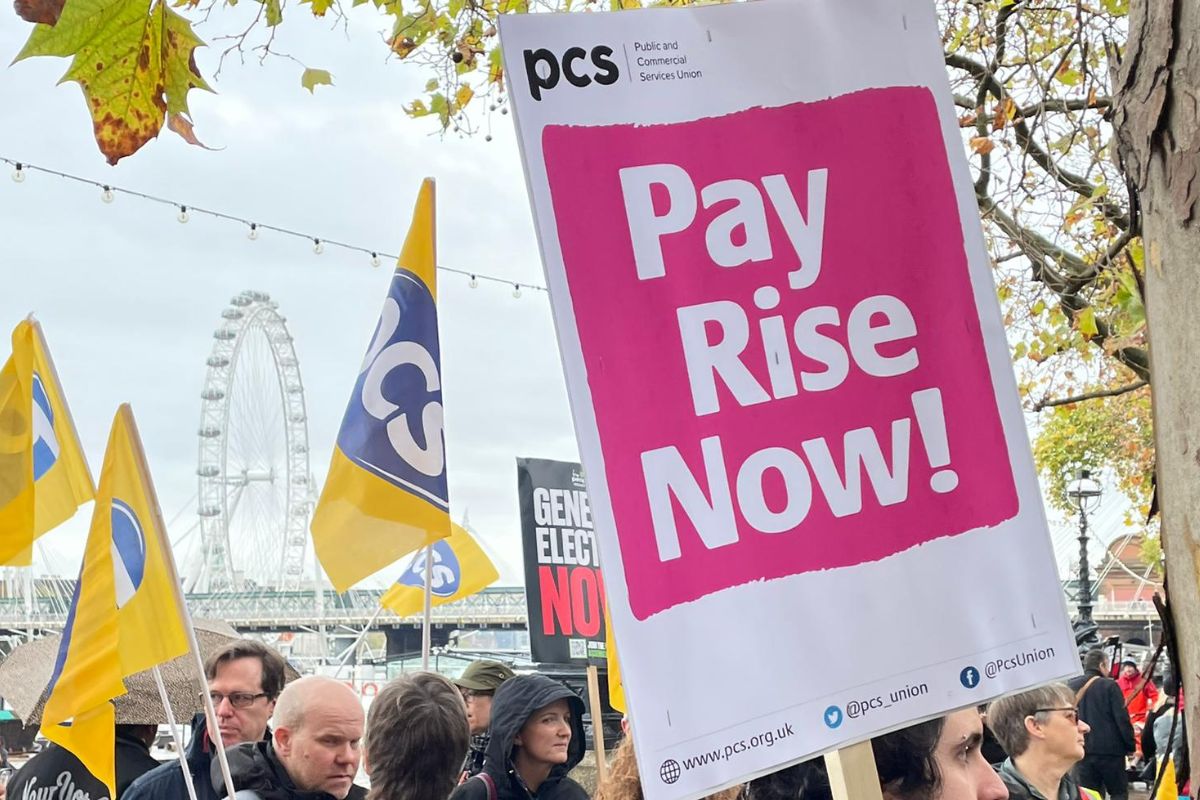The national executive committee of PCS, the main civil servants’ union, has, in effect, suspended the union’s campaign of industrial action. This follows the Tory government’s recent offer of a lump sum of £1,500, in addition to a pay increase of 4.5-5% for 2023-24.
The first thing to note is that this deal is more than the government was offering earlier in the year, when the Tory strategy was to dig their heels in.
This is a direct result of the strikes that PCS has undertaken over the last year – the most industrial action organised in the union’s history.
Different areas of the civil service were brought out on strike for weeks at a time, accompanied by three joint days of strike action across the whole union. This seriously hampered key parts of the state.
Militancy
The message received by members, loud and clear, is that strike action works. Militancy pays

But while PCS has won concessions from the government, this alone is not enough.
A lump sum of £1,500 is a lot of money for a low-paid civil servant – and most civil servants are low-paid. Halting the government’s effort to slash redundancy pay is also a good result, though we know the Tories will still look to cut jobs.
The key point is on pay. Inflation is still very high. A 4.5-5% offer is not a match for rising prices, which are still increasing at a rate of 7.8%. And the £1,500 one-off payment will run out sooner or later.
It’s clear, then, that the union’s position has been relatively strengthened thanks to the strike action of recent months – but no more than this.
Mood
PCS branches were asked to sound out members across the union, in order to establish whether the mood existed for continued industrial action in support of the union’s claim.
The response to this consultation was mixed. A section of newer, younger activists have been vocal in demanding further action. They see the ongoing weakness of the Tory government as an opportunity to squeeze it further.
It is also true, however, that a large section of the membership are more cautious. While some may also want more, they are also worried about whether they can land a decisive blow against the government if PCS strikes alone.
Unity
This mixed mood will also be influenced by the situation in the wider trade union movement,

Other unions – some arguably in a stronger position than PCS – are also pausing their respective action. Given this, it is understandable why some members might be concerned about taking isolated action.
But this situation was not inevitable. Had the trade union leaders acted together, and seriously taken up the task of coordinating their struggles, it was entirely possible that they could have sunk the Tory government already.
PCS did push for unified action. But it is clear, looking back, that the unions have largely fought the last year’s battles individually. Only on a few occasions have strikes overlapped.
And even then, what has been missing is not only a strategy to bring these struggles together – that is, a mass campaign of coordinated action; but also a clear socialist political programme around which all workers can be united, instead of the piecemeal pay demands that each union has fought for.
Test
For now, it therefore looks PCS’ pay dispute will be on hold. A consultative ballot is being held across the union over the next month, in August, in order to formally gain members’ acceptance for this pause.
It is correct to test the strength of feeling amongst members for further strike action over this year’s pay claim. What members are willing to do in the immediate period, and what they aren’t, is a key question.
Marxists strive to tell the truth. We start by explaining reality. We have to deal with how things actually are, rather than how we would like them to be.
Similarly, it is sometimes necessary in battle to retreat in good order, after a partial victory, rather than risk a rout by pressing forward with tired troops. And this ballot will test whether such an orderly retreat is necessary, or whether the union is fighting fit for attempting a new advance.
Prepare
If a hiatus is decided upon, then this pause period must not be wasted.

New layers that have been brought into union activity through this struggle must be consolidated in preparation for the next battles – especially in key departments such as the DWP, MoJ, and HMRC.
Most crucially, the question of coordination is central for any further round of walkouts. And PCS can play a vital role in pushing for a united campaign, alongside other unions, when the next strike wave rolls around.
This – alongside a bold socialist programme that presents a real alternative to austerity, instead of tinkering around the edges – will be key for future victories.
Make no mistake: the pausing of one battle does not mean the end of the war. We must prepare seriously for the next outbreak of hostilities, and ensure that we are in a position to win.






